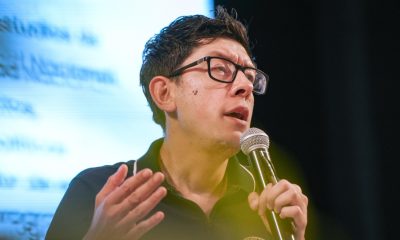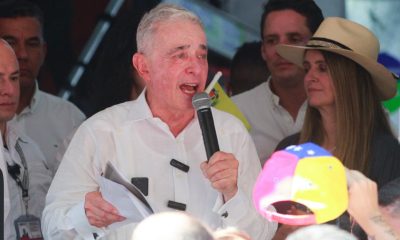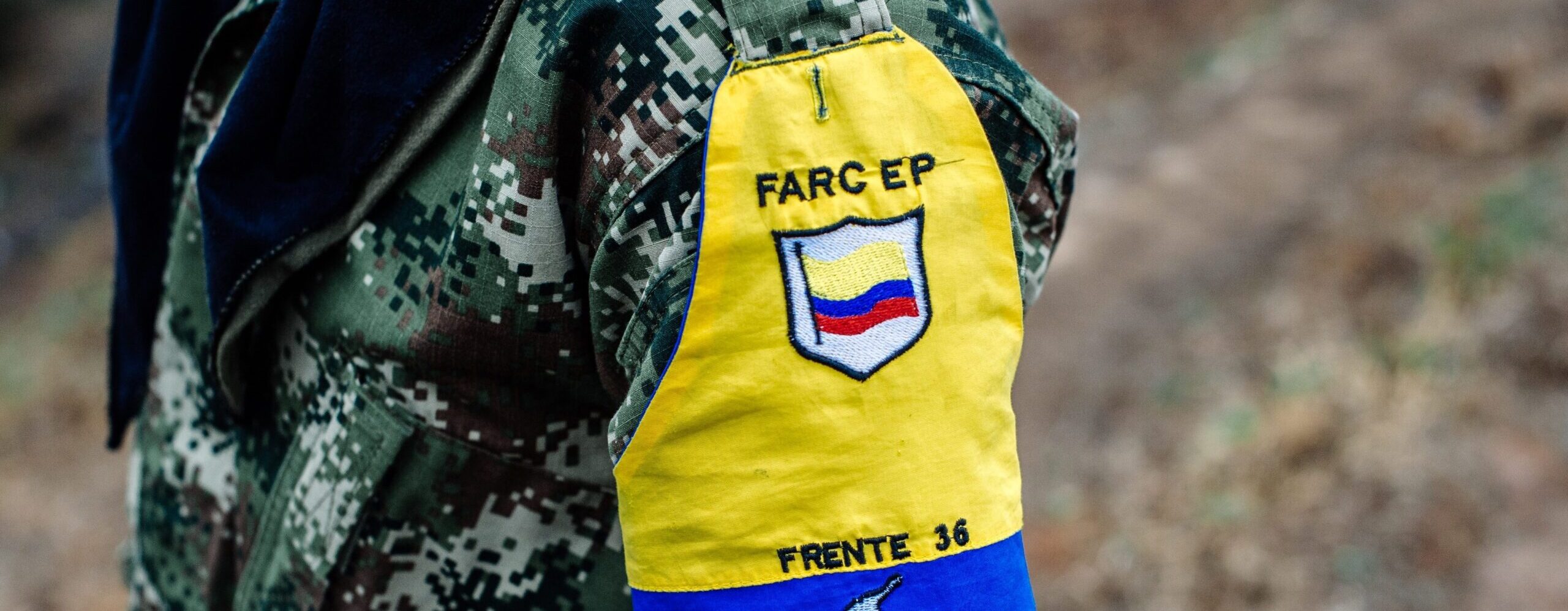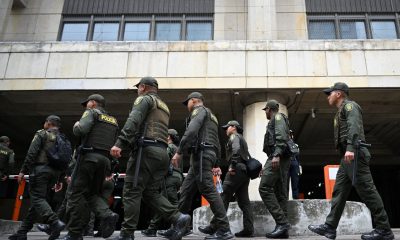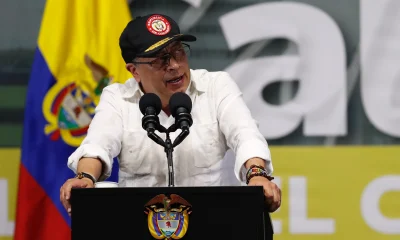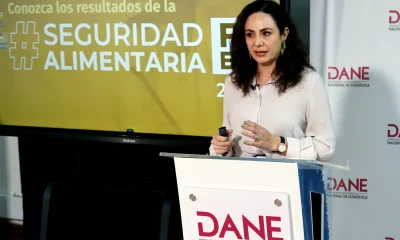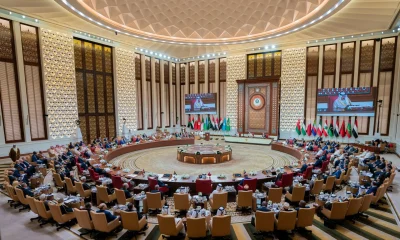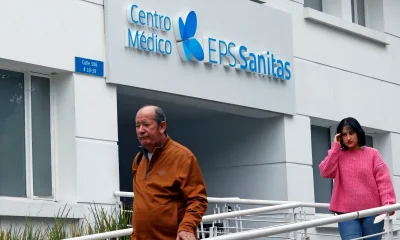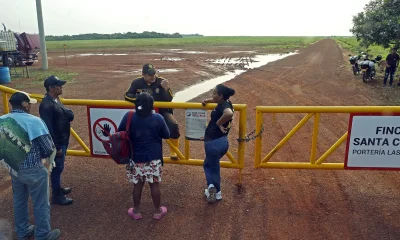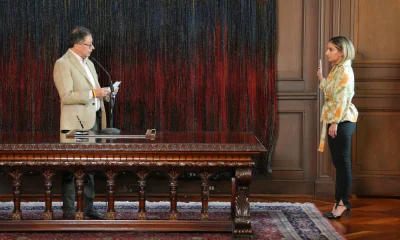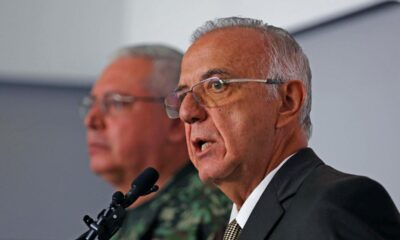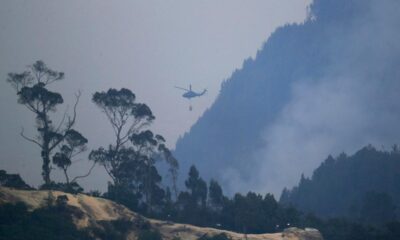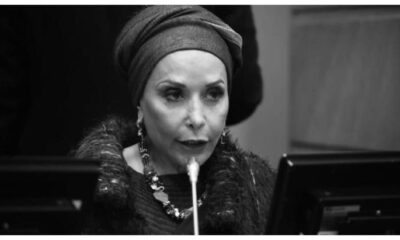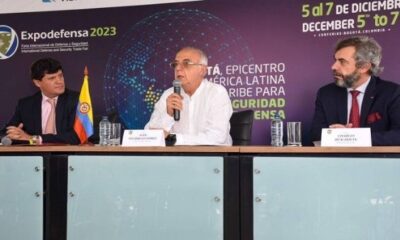International
Indigenous film bringing cross-border Amazon tribes together
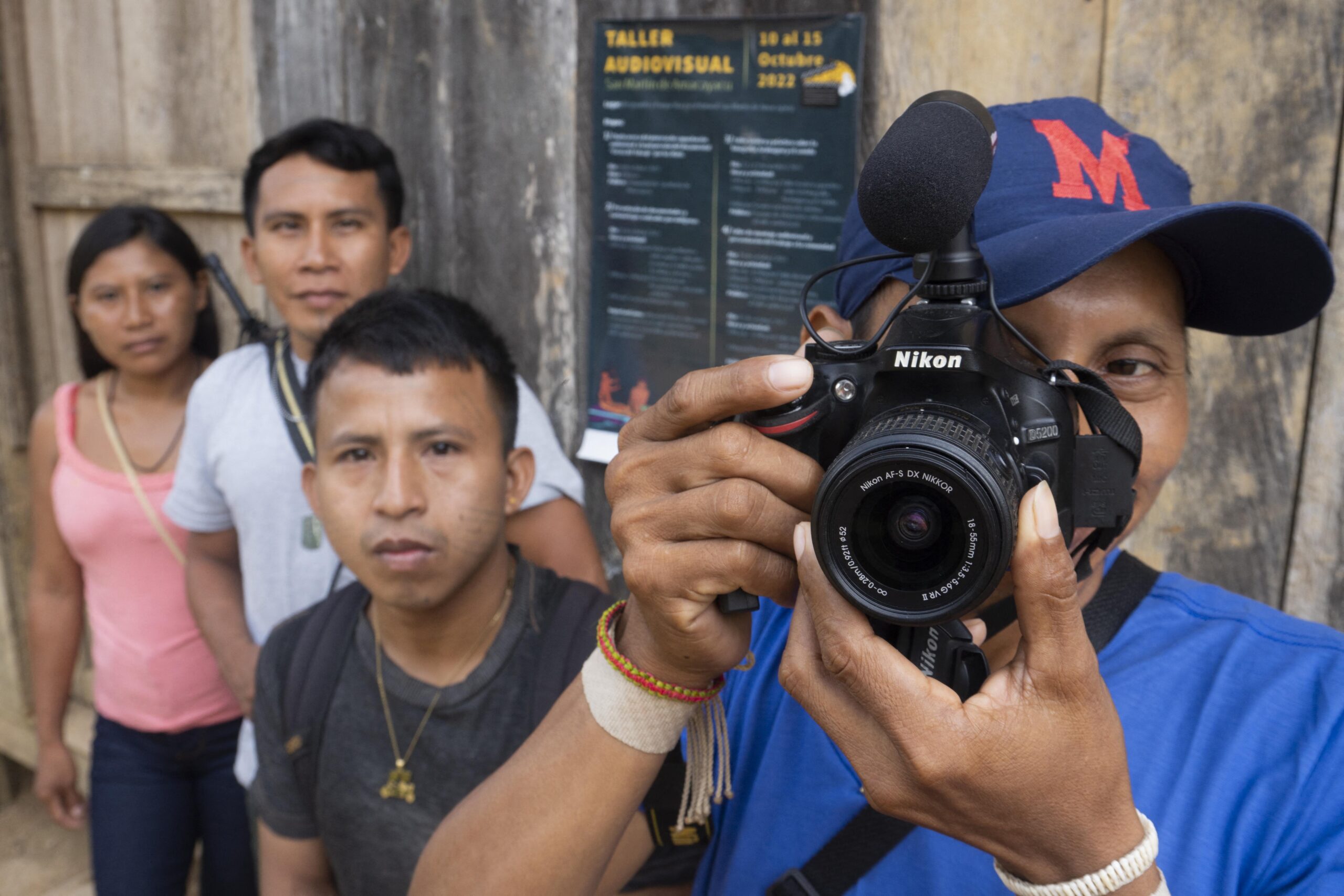
| By AFP | Lina Vanegas |
In Colombia’s Amazon jungle, indigenous people of different nations, ethnicities and languages have come together to find a single voice in cinema to tell their own stories, rather than let outsiders do it.
One recent week, in the community of San Martin de Amacayacu in southern Colombia the local Tikuna tribe was joined for the first time by the Matis people of Brazil for a crash course on film.
“We didn’t know how to operate a camera so what they are doing is showing their experience, offering knowledge and perseverance,” Lizeth Reina, a 24-year-old Tikuna, told AFP.
The Matis, a tribe only contacted in 1976, acquired two video cameras in 2015 and were taught how to film by the Brazilian Center for Indigenist Labor (CTI) and the National Indian Foundation.
Last month, they made a seven-day journey along fast-moving rivers and almost impenetrable jungle paths to share their knowledge with this Colombian community of some 700 people.
As the boot camp got under way, a Matis with a distinctive facial tattoo, gave instructions on how to focus a video camera.
Around 10 Matis, known as “cat men” for the feline tattoos on their faces, had arrived from their home region in the Yavari valley — an area larger than Austria and rife with drug trafficking and illegal mineral extraction, logging and fishing.
British journalist Dom Phillips and indigenist Bruno Pereira were murdered there in June.
The Yavari valley has the largest number of voluntarily isolated communities in the world.
“It’s not easy getting here, we suffered a bit, but it’s very emotional,” filmmaker Pixi Kata Matis, 29, said of the journey to San Martin.
‘Future memories’
Tikunas laughed as their guests grimaced while sipping masato, a fermented yucca-based drink passed around in a cup made from the hard rind calabash tree fruit.
Films were projected inside the maloca, a cultural, political, social and spiritual center.
Hundreds of dazzled spectators watched as images of hunts with blowguns, bows and arrows flashed before their eyes, as well as the tattoo festival that marks the coming of age of young Matis.
“We have to show other people and the whites that we have our own identity,” said Kata Matis.
The films “can help keep memories for the future … so we don’t forget our traditions,” added Yina Moran, 17.
Placed in mixed groups, the Tikunas proposed three short films on seeds, medicinal plants and masato, with the help of Matis, the CTI and the French association ForestEver.
“The cameras blended into the landscape and families were more willing to share and communicate,” said ForestEver coordinator Claire Davigo.
‘Exotic reports’
San Martin de Amacayacu, surrounded by a lush natural park, is made up of wooden houses, some with colorful painted walls, that are home to several generations of the same family.
Apprentices and their mentors spent the day conducting interviews and filming daily life.
“The communication was wonderful because although we hardly speak Portuguese, we understood each other through our cultures,” said Moran.
In the afternoon, locals made their way down to the river to wash clothes or bathe. At night, generators were fired up to provide four hours of electricity. After that, the noise stopped to make way for jungle sounds.
A decade after they were first contacted, the Matis were already the “stars of exotic reports” by US, Japanese, French and British journalists, according to the CTI.
Foreigners were captivated by their body art and accessories: ears pierced with huge ornaments, fine rods passing through noses and lips, face tattoos and bodies draped in jewelry.
But Kata Matis complained that “many people wanted to go to the village … filming without our authorization, without our understanding, and then they took the material” without sharing it.
To prevent a repeat, the Matis began writing their own history in 2017.
Living ‘with two worlds’
Since arriving in San Martin, Dame Betxun Matis, 27, has not put down his camera.
He took part in producing the “Matis tattoo festival” documentary that won the jury prize at the Kurumin indigenous cinema festival in 2021.
The film demonstrates the tradition of marking the face, a practice abandoned by young people who faced discrimination in cities.
Kata Matis convinced the community to resume the tradition and filmed as some 90 young people underwent the ritual.
On the Matis’ last night in San Martin, hundreds of locals crammed the maloca to watch the Tikunas’ short films.
After much laughter, applause and shared masato, Kata Matis reflected on the place of indigenous people in modern nation states.
“We don’t live between two worlds, we live with two worlds,” he said.
International
From the transfer of the coffin to the funeral, three days to say goodbye to Pope Francis
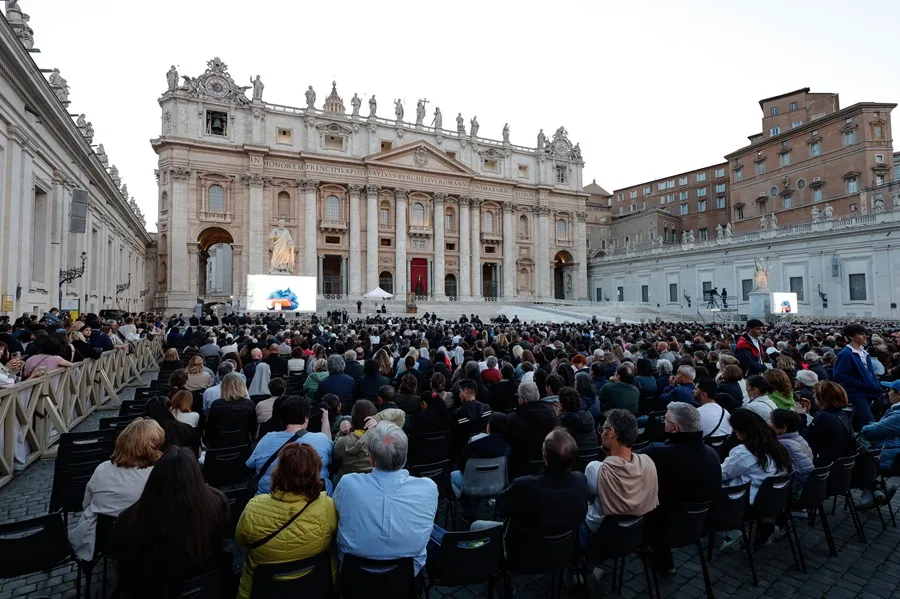
The public funeral of Pope Francis will begin this Wednesday, with the transfer of the coffin to St. Peter’s Basilica to receive the tribute of the faithful, who will have three days to say goodbye to the pontiff, until Saturday, when the funeral and the funeral of the pontiff will be held.
The coffin with the body of Francisco, who died this Monday at the age of 88 due to a stroke after months of suffering serious respiratory problems, has been veiled since his death in his residence of the Casa Santa Marta at the express request of the pope, who made some changes in the rules to simplify the funerals of the pontiffs.
From today, the faithful, with whom Francisco liked so much to surround themselves to feel his closeness and affection, will be able to go to the basilica to say goodbye during three intense days in which the temple will be open Wednesday and Thursday until midnight.
At 9.00, local time (10.00 GMT), and after a moment of prayer, chaired by the carmarlengo, Cardinal Kevin Joseph Farrell, “the translation” of the body will begin, as decided by the 60 cardinals participating this Tuesday in the first general congregation or preparatory meeting for the conclave.
The procession will pass through Santa Marta Square and the Roman Protomartyrs Square and from the Arch of the Bells will exit to St. Peter’s Square and enter the Vatican Basilica through the central door.
Then on the Altar of Confession, under the canopy, the chamberlened cardinal will preside over the Liturgy of the Word, at the end of which the visit of the faithful will begin.
The funerals will be on Saturday, April 26 at 10.00, local time (8.00 GMT), in St. Peter’s Square, while tomorrow, Wednesday, the coffin will be transferred to the Vatican Basilica to receive the tribute of the faithful.
The ceremony, which is scheduled for the arrival of Heads of State from all over the world, will begin at 10.00 local time (8.00 GMT) and will be officiated by the dean of the college of cardinals, Giovanni Battista Re.
Then, the coffin will be transferred to the basilica of Santa María la Mayor to be buried, as the Argentine pontiff left in his will.
“Thank you for bringing me back to the Square,” Francisco said to his personal health assistant, Massimiliano Strappetti, for encouraging him to make his last trip on the papamobile on Sunday, after the Urbi et Orbi blessing, touring St. Peter’s Square among the faithful.
These words, among the last of the pontiff, according to the Vatican media, show once again the importance that “the pope of the disadvantaged” gave to contact with people, even in their last hours.
“Around 5.30 in the morning the first symptoms appeared, with the prompt intervention of those who took care of him. More than an hour later, after greeting Strappetti, who was lying in bed in his apartment on the second floor of Casa Santa Marta, the pope fell into a coma. He didn’t suffer, everything happened quickly, says someone who was by his side in those last moments,” Vatican news revealed.
According to the date chosen for the funeral and the rules governing the process, the conclave must be held between May 5 and 15, since no more than 20 days should pass and the funerals, the so-called Novediales, in which suffrage masses are held by the late pontiff, cannot be called during the successive days.
Despite having been elected mostly by Pope Francis, the 135 cardinals from 71 countries who will form the conclave that will choose their successor are a heterogeneous group that is not known and without a common idea about the future of the Church, which will make them present themselves in the Sistine Chapel strongly divided.
There are many differences with respect to the conclave that met twelve years ago to elect Jorge Bergoglio: one is the number of cardinal electors, that is, those who are under 80 years old on the day of the pope’s resignation or death, which is much greater than on other occasions, and another, the largest number of countries from which they come.
International
A very heterogeneous and divided conclave will elect the new pope
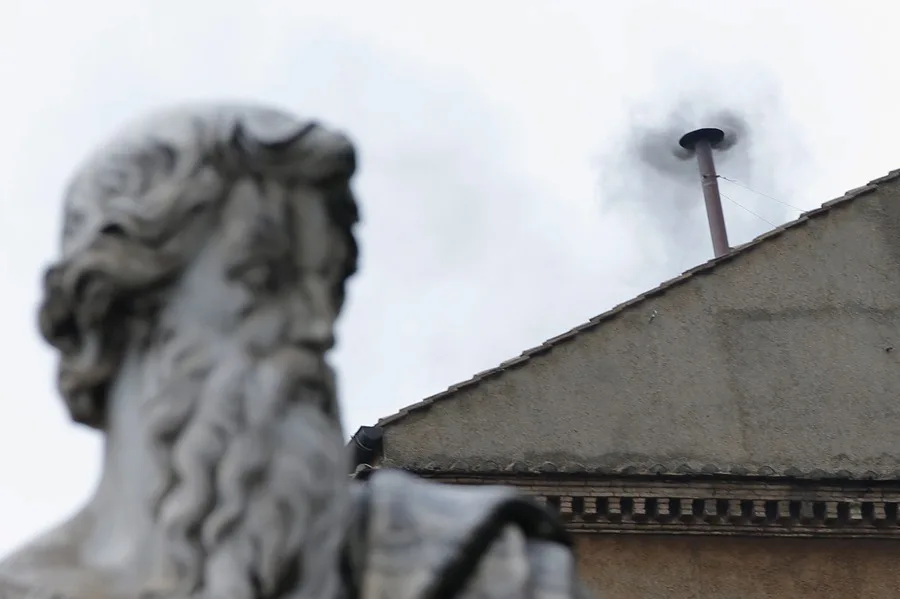
Despite having been elected mostly by Pope Francis, who died this Monday at the age of 88, the 135 cardinals from 71 countries who will form the conclave that will elect their successor are a heterogeneous group that is not known and without a common idea about the future of the Church, which will make them present themselves in the Sistine Chapel strongly divided.
There are many differences with respect to the conclave that met twelve years ago to elect Jorge Bergoglio: one is the number of cardinal electors, that is, those who are under 80 years old on the day of the pope’s resignation or death, which is much greater than on other occasions, and another, the largest number of countries from which they come.
“Yes, I think that the fact that the 135 voters come from 71 countries could have weight in the conclave, since a candidate needs two-thirds of the votes to be elected. In 2013, that meant 77 votes. In the next conclave, based on the current number of voters, it would be 91. To date, 68 voters come from Europe and North America,” analyzes Irish journalist Gerard O’Connell in his book “The election of Pope Francis: an intimate account of the conclave that changed history.”
In addition, “the fact that many of the cardinals do not know each other so well, except those who participated in the synod, could create some difficulties, so they will depend more on the ‘makers of kings’, who are esteemed and influential cardinals, many of them over 80 years old,” says the also correspondent in Rome of the magazine of the Society of Jesus, America Magazine.
For the analyst of the newspaper ‘Corriere della Sera’ Massimo Franco and author of several books on the Vatican, the conclave that chose Bergoglio “was born with a strong anti-Italian prejudice, because it was a conclave following the resignation of Benedict XVI and if then the unwritten slogan was no to an Italian pope, this time it will be no to a South American pope, perhaps he will probably become a European.”
Franco assures that “the conservative minority are the ones who have expressed themselves the most, but in reality there is a wide and silent gray area that he has obeyed out of loyalty, although in reality he has disapproved of many of Pope Francis’ behaviors.”
“They come from 71 nations and this is a problem because they are cardinals who do not know each other, who come from peripheral realities not only from a geographical point of view, but also from a demographic and religious point of view,” adds the journalist of the Milanese newspaper.
For Franco, the curial model has failed and also the model of Casa Santa Marta (formed by the pope and his small group of collaborators), so “there will be a discontinuity”.
While Massimo Faggioli, professor of the history of Christianity at the University of Villanova (USA), assures that with respect to 2013, “today there is no factor of a candidate already examined in the previous conclave.”
“Similar to that of 2005 is the situation of division in the Church before the decisions of the pope, which however during the pontificate of Francis emerged harshly also on the part of cardinals and bishops, in a different way than Benedict XVI,” he says.
He emphasizes that “an essential difference is the international situation, much more complicated and dangerous than in 2013, especially because of what is happening in the US and consequently in the world.”
“There are several cardinals who have been very critical of Francis on certain issues, but have lost influence and voice in recent years. They have been cautious, but in the conclave they could find support among those who are surprised and tired of a pontificate with so much novelty and turbulence,” he emphasizes.
However, O’Donnel believes that “that most substantially share their vision and are committed to synodality.
After talking to many cardinals created by Francis, voters are more likely to vote for a candidate who substantially shares his vision.”
International
Modi returns to India and shortens his visit to Saudi Arabia after a deadly attack in Kashmir
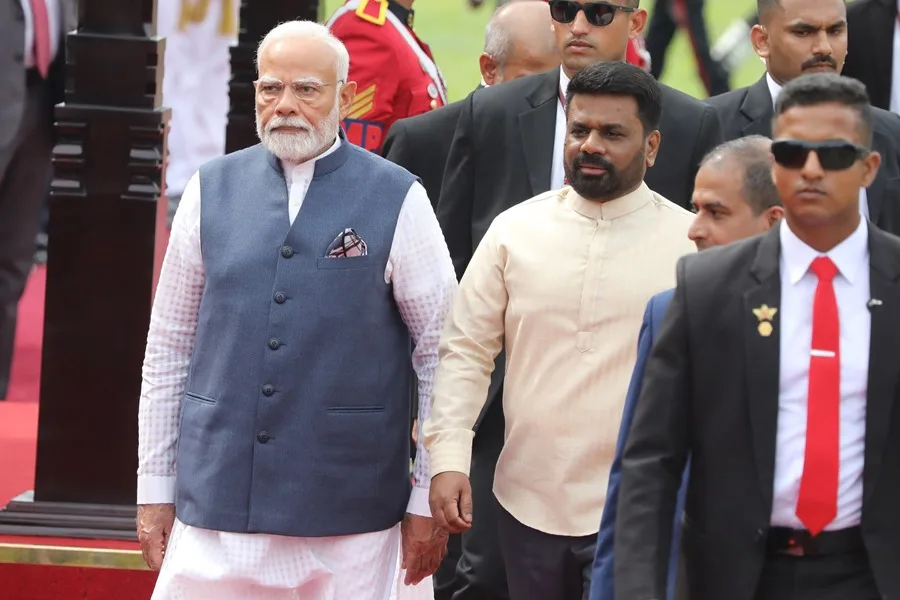
Indian Prime Minister Narendra Modi shortened his visit to Saudi Arabia and returned to New Delhi on Wednesday after the deadly terrorist attack with 28 dead in the Pahalgam region, in Indian Kashmir, one of the worst attacks against civilians in recent years.
Upon his arrival in the Indian capital, the prime minister immediately held a high-level information meeting at the airport to analyze the situation resulting from the deadly attack against a group of tourists, which occurred yesterday, according to images from the Government.
Modi, who had just started an official visit to Saudi Arabia, met with the Minister of Foreign Affairs, S. Jaishankar, National Security Advisor, Ajit Doval, and Foreign Secretary Vikram Misri, according to images of the meeting.
The attack in Pahalgam occurred yesterday when alleged militants attacked a group of tourists, killing 28 people and injuring more than 20.
Survivors of the attack, quoted by Indian media, told how the aggressors approached them in the meadow and began shooting at close range, pointing, according to reports, to individuals who claimed not to be Muslims.
The attack marks a serious escalation with respect to other recent incidents in Indian-controlled Kashmir.
Previously, the deadliest attack in recent years took place in February 2019, when a suicide attack killed at least 40 Indian paramilitary police officers.
As for attacks against civilians, a notable incident took place in March 2000, when an insurgent attack on a village in the south of the region killed at least 36 people.
The Kashmir region has been a long-standing point of conflict between India and Pakistan since its separation from the British Empire in 1947. Both nations have fought wars and other minor conflicts for the control of the territory.
Since 1989, the region has been the scene of an armed revolt against the New Delhi Government, a conflict that has caused the death of tens of thousands of people. India maintains that Pakistan supports the insurgency, a statement that Pakistan denies.
In response to the attack, the Indian Army and Kashmir Police have launched a search operation in the Baisran area, Pahalgam, in the Anantnag district, to arrest the perpetrators.
The attack on tourists in the Pahalgam area, in the Anantnag district, has caused widespread condemnation throughout the country. Several political leaders, including Modi and Interior Minister Amit Shah, have denounced the attack.
International leaders, such as US President Donald Trump and Russian President Vladimir Putin, also issued statements condemning the violence and expressing their solidarity with India.
Kashmir administered by India woke up this Wednesday paralyzed under strong security measures, even greater than usual in this heavily militarized region, while security forces try to find those responsible for the insurgent attack that killed 28 people yesterday.
Hundreds of police and soldiers are deployed today in Srinagar, the main city of the region, and in other cities such as Pahalgam, the closest to the place of the attack, with patrols that go through every street making loud sirens sound, according to EFE.
The region also observes a total closure of its activity, called by several local religious and political leaders, in addition to the main commercial organizations.
All stores, commercial establishments and educational institutions are closed while university exams scheduled for today have been postponed.
The attack occurred yesterday about five kilometers from Pahalgam, in a meadow frequented by locals and visitors, when alleged insurgents attacked a group of tourists, causing the death of 28 people and injuring at least a dozen people.
Survivors of the attack, quoted by Indian media, told how the aggressors approached them in the meadow and began shooting at close range, pointing, according to reports, to individuals who claimed not to be Muslims.
The security forces have not notified the arrest of any person so far, while a police investigation is already underway.
“A team from the National Investigation Agency (NIA) is expected to arrive in Pahalgam to take charge of the investigation of the incident,” an official from the Kashmir divisional commissioner’s office told EFE.
According to a source close to the investigation cited by The Indian Express, there were four insurgents involved in the attack.
-

 Central America4 days ago
Central America4 days agoSenator Van Hollen Meets with Deported MS-13 Member in El Salvador; Trump and Bukele React
-

 Central America3 days ago
Central America3 days agoCardinal Rodríguez to Attend Funeral of Pope Francis: “He Was Very Dear to Me”
-

 Central America3 days ago
Central America3 days agoNicaragua’s Ortega and Murillo Mourn Pope Francis, Acknowledge ‘Difficult’ Relationship
-

 International5 days ago
International5 days agoThousands rally nationwide against Trump’s threat to U.S. democracy
-

 International4 days ago
International4 days agoPope Francis Appears for Easter Blessing, Calls for Peace and Religious Freedom
-

 International3 days ago
International3 days agoDominican Republic Declares Three Days of Mourning for Pope Francis
-

 International3 days ago
International3 days agoDHS Secretary Kristi Noem’s Purse Stolen in D.C. Restaurant Heist
-

 International1 day ago
International1 day agoFrom the transfer of the coffin to the funeral, three days to say goodbye to Pope Francis
-

 International2 days ago
International2 days agoPope Francis and Trump, a relationship of disagreements marked by migration
-

 International3 days ago
International3 days agoPope Francis: The Quiet Architect Behind the U.S.-Cuba Thaw
-

 International2 days ago
International2 days agoWithin Francis’ private wake: respect and prayer for the deceased pope
-

 International1 day ago
International1 day agoModi returns to India and shortens his visit to Saudi Arabia after a deadly attack in Kashmir
-

 International2 days ago
International2 days agoThe pope last called the Gaza parish on Saturday and asked about the children
-

 International2 days ago
International2 days agoTrump’s emissary will visit Russia this week for consultations on the arrangement in Ukraine
-

 International2 days ago
International2 days agoAmerican universities and colleges sign a letter against Trump’s policy
-

 International1 day ago
International1 day agoA very heterogeneous and divided conclave will elect the new pope
-

 International2 days ago
International2 days agoCardinal Becciu’s enigma: will he enter the conclave?
-

 International2 days ago
International2 days agoBurma’s military junta extends ceasefire until April 30 due to the earthquake
-

 International2 days ago
International2 days agoThe Government of Colombia presents twelve questions that it will propose in a popular consultation to promote its reforms
-

 International2 days ago
International2 days agoA candidate for the Supreme Court denounces an unequal dispute in the judicial election of Mexico
-

 International1 day ago
International1 day agoMaradona’s house arrest is again a focus of tension in the trial for his death
-

 International1 day ago
International1 day agoThe Peruvian Public Ministry denounces the former attorney general for an alleged corruption case
-

 International1 day ago
International1 day agoEl Salvador formalizes the proposal for the exchange of Venezuelan deportees, according to Bukele
-

 International2 days ago
International2 days agoRoyal quinoa, the superfood that grows in front of the largest salt flat in the world in Bolivia
-

 International1 day ago
International1 day agoA judge orders the Trump Government to restore Voice of America services
-

 International2 days ago
International2 days agoInternational leaders begin to confirm their presence at Pope Francis’ funeral
-

 International2 days ago
International2 days agoChurch charges ceased or resigned in the papacy of Francis for cases of pedophilia
-

 International1 day ago
International1 day agoDonald Trump will visit Saudi Arabia, Qatar and the United Arab Emirates in mid-May
-

 International1 day ago
International1 day agoThe president of the World Bank underlines his intention to lift his veto on nuclear energy
-

 International1 day ago
International1 day agoMarco Rubio reorganizes the State Department to eliminate offices and jobs
-

 International1 day ago
International1 day agoThe Brazilian Supreme Court opens trial against six others accused of leading the coup attempt
-

 International1 day ago
International1 day agoA judge in the United States stops the deportation to El Salvador of a hundred Venezuelans


















